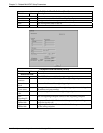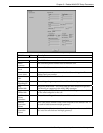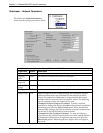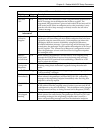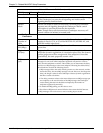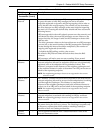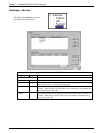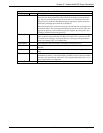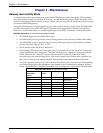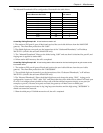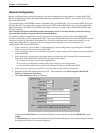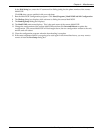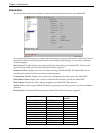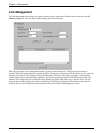
Chapter 4 - Miscellaneous
Multi-Tech Systems, Inc. Avaya Communication Manager Guide 65
Chapter 4 - Miscellaneous
Gateway Survivability Mode
A customer may wish to have some ports on the MultiVOIP gateway not be managed by CM, but rather
have them directly routed over a private IP WAN to a second MultiVOIP gateway at the side of the WAN
network. An example of this would be to send a T.38 fax call over the private IP WAN network to a fax port
on a second MultiVOIP gateway.
Create phonebook entries for optional gateway survivable mode (if chosen). In this mode, the MultiVOIP
provides survivability to local FXS/FXO ports; IP phones are not supported. If IP phone survivability is
desired, it is recommended that you configure gatekeeper survivability in Section 6 and skip this section.
MultiVOIP Phonebook: A Communication Manager Example
1. An MVP810 (eight-channel) MultiVOIP is used
2. The MultiVOIP’s first six ports are used for analog stations with extensions numbers (6001-6006).
3. The MultiVOIP’s last two ports are used for analog FXO trunks that may be reached by dialing 9
plus the local area codes of “303” or “720”.
4. The IP address of this MVP810 is 204.26.122.1.
5. The incoming PSTN trunk calls from either port #7 or port #8 will use the “AutoCall” feature and
will be routed to the first station port. This port will serve as an “attendant” during survivability.
NOTE. Normally the “AutoCall” register will have the PBX extension of 8001 that will be
forwarded up to the MultiVantage server. But in this example of survivable mode operation, the
8001 will be routed to local station port 6001 with the help of the Outbound Phonebook table.
6. The Q.931 Signaling Port value of each Outbound Phonebook entry must match the Call Signaling
port value configured for the destination voice channel in the Communication Manager Settings
screen. The MultiVOIP’s Outbound PhoneBook will be configured as illustrated in the table below.
MultiVOIP Phonebook: A Comm Mgr Example
Outbound
Destination
Pattern
Remove
Prefix
Add Prefix IP Address
6001 204.26.122.1
6002 204.26.122.1
6003 204.26.122.1
6004 204.26.122.1
6005 204.26.122.1
6006 204.26.122.1
8001 8001 6001 204.26.122.1
9303 204.26.122.1
9720 204.26.122.1



